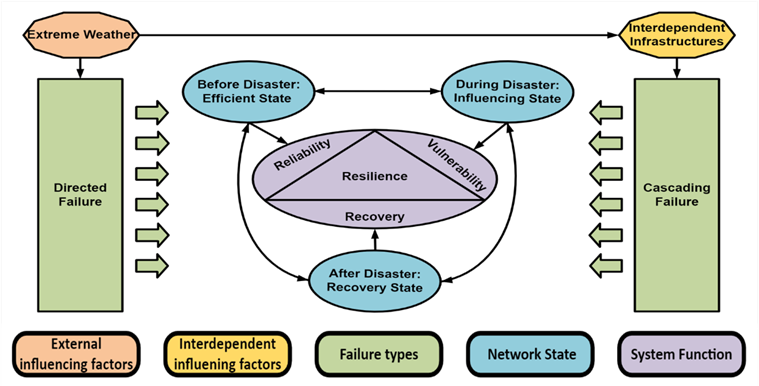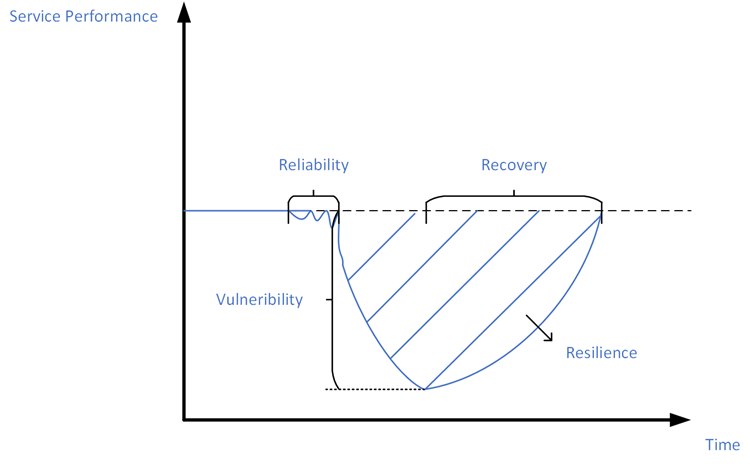Resilient Urban transport networks
PhD project of Siyu Gao
Urban critical infrastructure systems are essential for supporting socioeconomic development and residents’ lives. Yet, they are extremely vulnerable to hydrometeorological hazards, especially in the case of urban multi-modal transportation networks (including urban road, metro, railway and tram). For example, in 2021, urban flooding caused by sudden rainstorms in Zhengzhou, China, led to traffic congestion in many places, and passengers were stranded on public transportation and subways, causing heavy economic losses and 380 casualties. In New York, USA, several hurricanes have caused serious damage to urban transportation networks in recent decades, such as Hurricane Irene in 2011 and Hurricane Sandy in 2012. Moreover, recent studies have demonstrated that climate change is a critical external factor exacerbating vulnerabilities of urban transportation networks. Meanwhile, climate change tends to increase the variability of weather patterns and the frequency and severity of extreme weather. As a result, research is highly needed to explore how weather hazards influence the resilience changes of urban multi-modal transportation networks for decreasing infrastructure malfunctions and economic losses.

Based on the background illustrated above, I put forward a framework to emphasize what dynamics of resilience will be assessed in this study, shown above in Figure 1.The figure highlights that extreme weather disasters can directly cause disruptions of urban multi-modal transportation networks and lead to changes in system resilience. Moreover, the cascading failures resulting from interdependent infrastructures under extreme weather also induce malfunction and resilience changes in urban multi-modal transportation networks. Meanwhile, the concept of resilience assessed in this study consists of three highly related concepts: reliability, vulnerability, and recovery. These three concepts in this study are used to evaluate the different states of system function under a whole period of a weather disaster which will form the bases to assess resilience dynamics under climate extremes. Therefore, the conceptual model of resilience related to time and service performance is built here according to the resilience triangle model, as shown in Figure 2 below.

To summarize, during my PhD, this project will aim to investigate the evolution process of resilience of intra-city urban multi-modal transportation networks under a whole period of extreme weather as well as the development of practical adaptation strategies. This project is funded by China Scholarship Council (CSC) and Institute for Environmental Studies (IVM), VU Amsterdam.